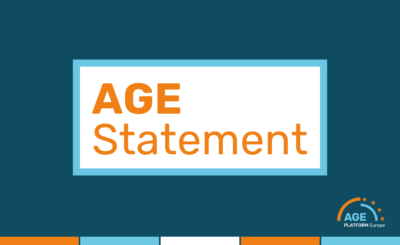Following a rountable a roundtable hosted AGE Platform Europe, Eurocarers and SCA to discuss the issue of incontinence and the provision of better continence care in Europe at home and in the community, representatives of pan-European patient and civil society groups have released a joint statement which identified five areas of policy and stakeholder action.
A ‘hidden’ or ‘invisible’ condition today, incontinence is often overshadowed by other chronic diseases. Yet incontinence is one of the most widespread and debilitating conditions to affect people over a life time. It affects approximately 4-8% of the adult population or the lives of 25-50 million people and an estimated 15 million informal carers in Europe today. The burden of incontinence is expected to grow due to an ageing population.
Much more can and needs to be done to improve continence care in Europe, at home and in the community, in order to enable people with incontinence and their carers to live active, independent and dignified lives.
The roundtable, held in 1st July, looked at the issue of incontinence and the provision of better continence care in Europe at home and in the community. Participants discussed how to contribute to a better understanding of incontinence and encourage relevant policy and stakeholder action to improve continence care, agreeing on a set of key policy recommendations to improve the management of care for people with incontinence and their carers at home and in the community. They also shared testimonies on the burden of incontinence in people’s daily lives and the barriers and solutions to better continence care that enable people with incontinence and carers to live active, independent and dignified lives at home and in the community. Wide consensus was found amongst participants of the untapped potential of better management and continence care at home and in the community, bringing value to people and society by making people socially continent.





